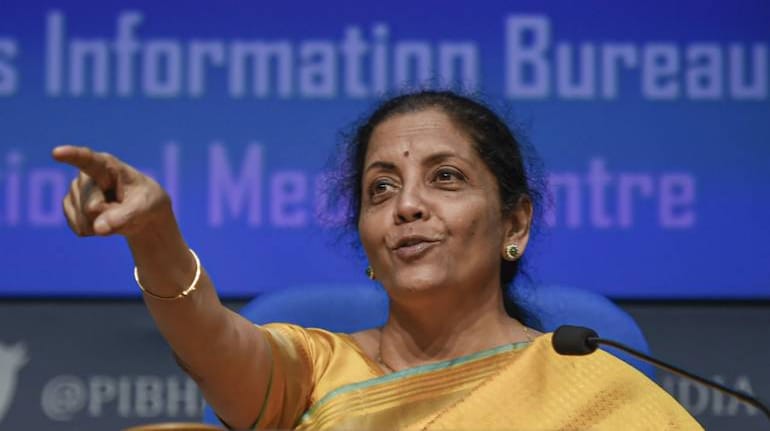



Finance Minister Nirmala Sitharaman on Tuesday held a review meeting on credit guarantee scheme with heads of public sector banks, and asked them to expedite loan disbursement under the Rs 3-lakh crore ECLGS for MSME sector, hit hard by coronavirus-induced lockdown. The meeting on Emergency Credit Line Guarantee Scheme (ECLGS) was held through a video conference, and the minister appreciated the efforts of banks in execution of the scheme.
"Hon'ble FM @nsitharaman Ji complimented PSBs on rapid traction for achieving sanctions of Rs 20,000 Cr under ECLGS. Also advised to maintain proactive outreach at branch level and keep Forms for ECLGS simple & formalities at minimum," Department of Financial Services said in a tweet.
"PSBs to continue focus on sanction & reaching out to eligible MSMEs. To also target meeting credit needs of other businesses," it said.
Earlier in the day the ministry gave cluster wise data of loans sanction till June 8.
"As of 8 June 2020, #PSBs have sanctioned loans worth Rs 1,109.03 cr for #MSME hubs in 12 States under the 100% Emergency Credit Line Guarantee Scheme, of which Rs 599.12 cr has already been disbursed to 17,904 accounts," the minister tweeted.
The scheme is the biggest fiscal component of the Rs 20-lakh crore Self-Reliant India Mission package announced by Sitharaman last month.
On May 21, the Cabinet had approved additional funding of up to Rs 3 lakh crore at a concessional rate of 9.25 per cent through ECLGS for the MSME sector.
Under the scheme, 100 per cent guarantee coverage are being provided by National Credit Guarantee Trustee Company (NCGTC) for additional funding of up to Rs 3 lakh crore to eligible MSMEs and interested Micro Units Development and Refinance Agency (MUDRA) borrowers, in the form of a guaranteed emergency credit line (GECL) facility.
For this purpose, a corpus of Rs 41,600 crore was provided by the government, spread over the current and next three financial years.
The scheme is applicable to all loans sanctioned under GECL facility during the period from the date of announcement of the scheme to October 31 or till an amount of Rs 3 lakh crore is sanctioned under GECL, whichever is earlier.
The main objective of the scheme is to provide an incentive to member lending institutions to increase access and enable availability of additional funding facility to MSME borrowers, in view of the economic distress caused by the COVID-19 crisis, by giving them 100 per cent guarantee for any losses suffered by them due to non-repayment of the GECL funding by borrowers.
All MSME borrower accounts with an outstanding credit of up to Rs 25 crore as on February 29, which were less than or equal to 60 days past due as on that date, i.e., regular, SMA-0 and SMA-1 accounts, and with an annual turnover of up to Rs 100 crore, are eligible for GECL funding under the scheme.
Follow our full coverage of the coronavirus pandemic here.
Discover the latest Business News, Sensex, and Nifty updates. Obtain Personal Finance insights, tax queries, and expert opinions on Moneycontrol or download the Moneycontrol App to stay updated!
Find the best of Al News in one place, specially curated for you every weekend.
Stay on top of the latest tech trends and biggest startup news.